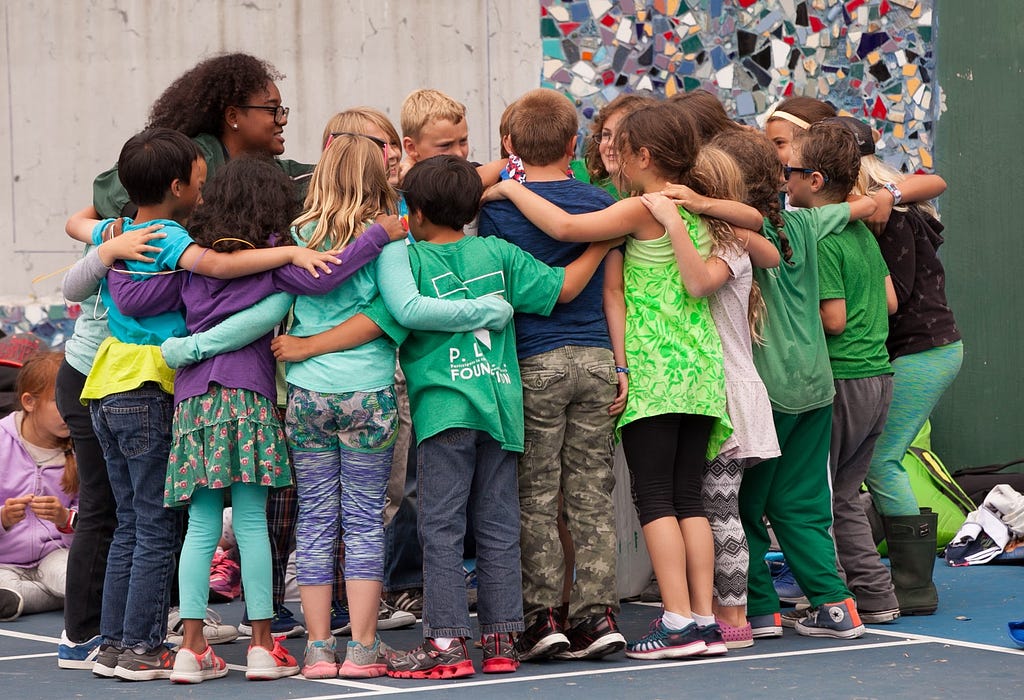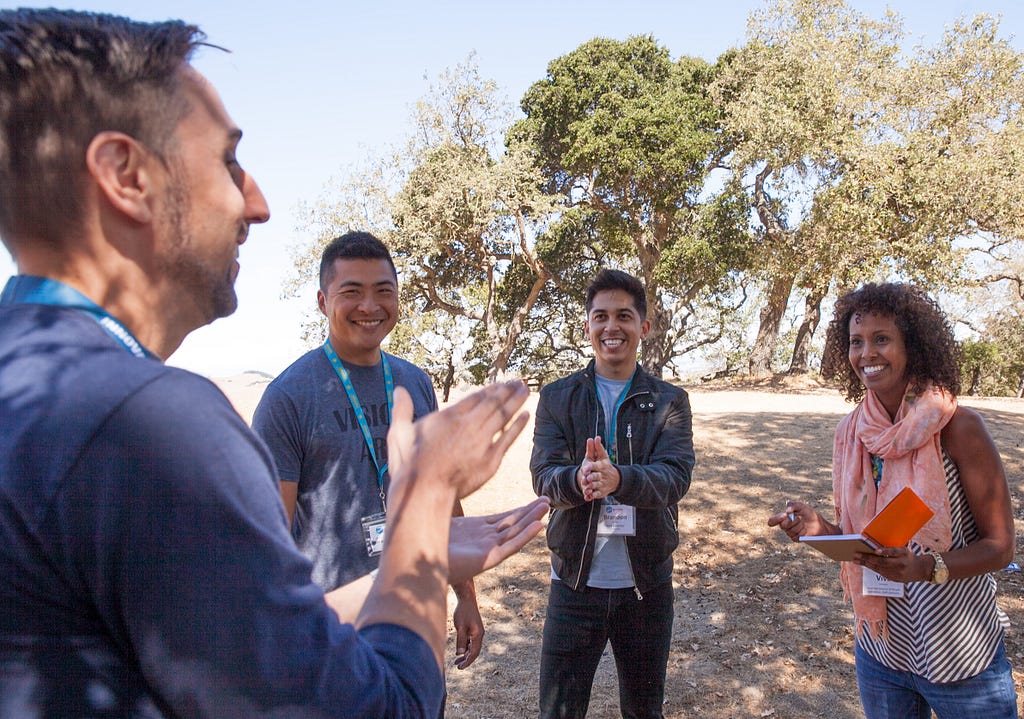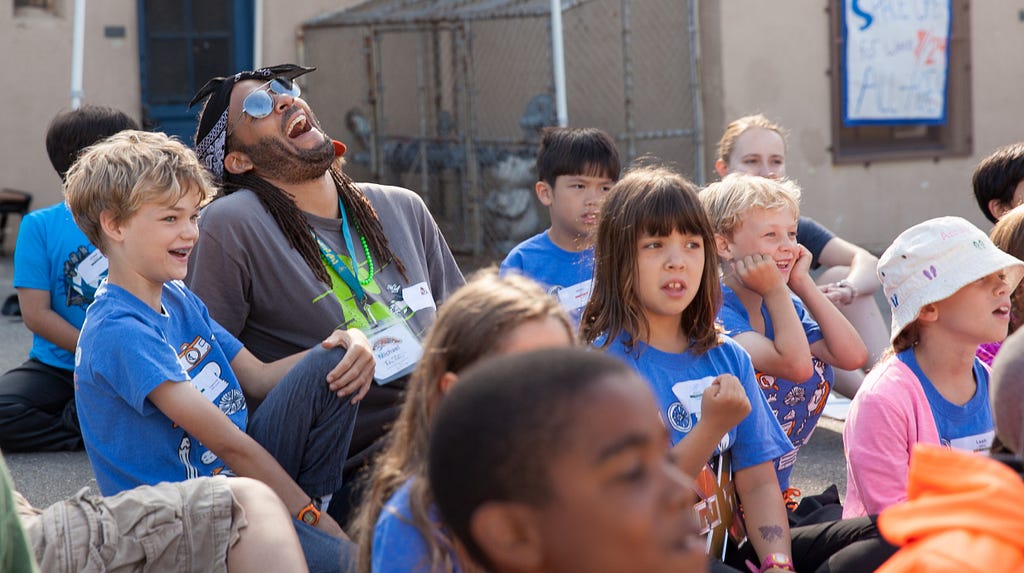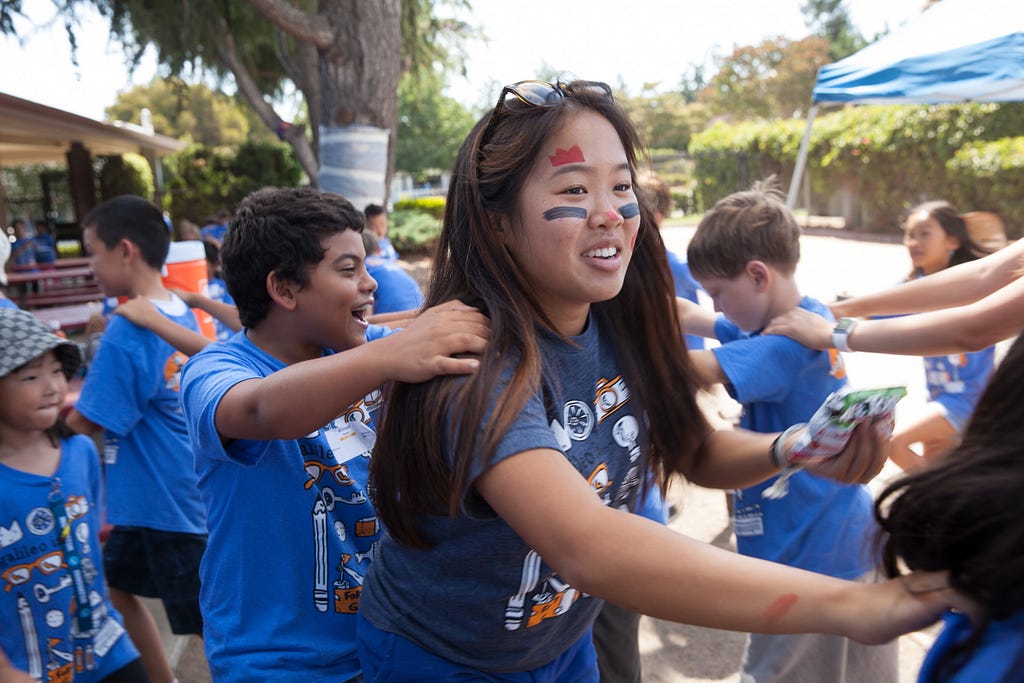Taking Large and Small Steps: Galileo Continues Inclusion Journey While Sharing Lessons Along the Way
B Corp Finds that True Change Often Goes Beyond the Numbers

Through its innovative approach to summer camp, Galileo encourages young campers to envision and create a better world. It’s an especially appropriate approach for Galileo as a Certified B Corporation that follows transparent, accountable business practices while succeeding as a business.
Galileo was among the first participants in B Lab’s Inclusive Economy Challenge, where B Corps improve their business policies and practices to better support those most in need: underserved populations, underrepresented employees, and an overburdened planet.
With more than 70 summer camps throughout the Bay Area, Southern California, and Chicago, Galileo’s business setup creates unique inclusion challenges. The B Corp has full-time, year-round employees; a seasonal team; close to 3,000 summer staff members; and delivers more than 60,000 sessions of camp per summer.
During its first Inclusive Economy Challenge, the Galileo team learned several valuable lessons, realizing that some changes could be made quickly while others were much longer-term projects. But the company was heartened to see how employees embraced the inclusion initiative.
Read more about Galileo’s initial experience with the Inclusive Economy Challenge.

B the Change checked in recently with Viva Asmelash, an associate director of people operations and a co-lead on the company-wide initiative, for an update on the B Corp’s Inclusive Economy Challenge work.
How did Galileo determine which metrics it wanted to measure?
When we kicked off the initiative two years ago, there were several metrics that felt important. For example, we’ve been dedicated to greater equity for years through our community efforts, but we knew—simply from looking around at team meetings—that we needed to focus first on inclusion and the racial diversity of our headquarters team. Even then, we decided to have one year of laying a strong foundation for an inclusive environment before getting hyper-focused on diversity and driving numbers.
By the time our team was set to create hiring metrics in 2018, our inclusion and diversity hiring sub-team had researched best practices on that topic and found that most companies focused on setting goals based on the desired long-term vision, then utilized it to inform any annual hiring goals. So we started there, with finalizing our long-term vision: By 2025, we want to ensure that Galileo is an inclusive employer that more closely reflects the diverse populations of the major metro areas we serve and is reported as such by all key constituent groups. Next, we made the decision to set annual numeric goals that are specific, steady, and realistic for our team: for at least 35% of all new HQ hires to be people who report as part of non-dominant race groups.
In being thoughtful and making a true company-wide time commitment, our headquarters staff who self-identify as members of non-dominant race groups has increased from 27.72% in April 2018 to 38.1% in April 2019. We’re proud of this progress and know we have more work to do in this and other inclusion-related goals we’re setting.
An inclusive economy is one that creates opportunity for all people of all backgrounds and experiences to live with dignity, to support themselves and their families, and to make a contribution to their communities. Access free resources from B Lab to build a more inclusive economy through your business.

What advice do you have for other companies that are starting diversity and inclusion work?
We came across this article with Aubrey Blanche, Global Head of diversity and belonging at the software company Atlassian, that made so much sense to us. In it, Blanche shares that, “When we focus so much on the numbers, it can stand in the way of progress. Focusing just on recruiting is solving a symptom, not tackling the root cause or the source. If the canary in the coal mine stopped singing, the miners’ response wasn’t to throw 50 more canaries down there. It was to realize that the environment wasn’t safe. By focusing only on the numbers, we’re not asking companies to do the hard work of changing their culture to be more inclusive.” That resonated with us.
We’re so glad we made the decision to commit to ongoing engagement and education for all headquarters staff on topics of inclusivity—six to eight sessions a year at all-staff meetings—before focusing on setting arbitrary metrics. I’d highly recommend that any company starting a project like this do the same.
For the most part, these were sessions our inclusion and diversity team fleshed out and led, and each generally last 25 to 45 minutes. Topics have ranged from foundational learning like unconscious bias and understanding microaggressions to deeper subject matter like our sense of self and exploring privilege. For the latter, we partnered with a former Galileo camp director, Tshilumba Kabongo, to facilitate a refreshed version of a “privilege walk” that explores how privilege affects all of us. This was an especially important session for our headquarters team to see — at the same time and right in front of us — the very different experiences represented at Galileo.
There are so many awesome resources available online for sessions like this, so this doesn’t always have to mean investing in external facilitators if it’s not feasible with your current company budget. Of course, we’d also advise being intentional in setting the right stage with these sessions — like setting a safe container with group agreements, framing the discussion, setting discussion norms.
How did the Inclusive Economy Challenge help advance Galileo’s work in this area?
Great question! It’s actually related to what I just shared about accessing resources that don’t always need to be a significant investment from consultants. During the Inclusive Economy Challenge, there were so many wonderful resources provided on building safe containers, how to form a project team, and so forth. This scaffolding helped make building this project internally far more smooth. B Lab had done so much of the ground work, so setting the stage and then continuing to lead the sessions (which are still going strong two years later) was even more realistic for us.
Click here for B Lab resources on diversity, equity and inclusion.

What are some specific steps or changes you’ve made?
We’ve taken a ton of large and small steps in the last two years, ranging from revamping hiring manager tools to creating tenets illustrating exactly what being an inclusive and diverse camp looks like (then training camp directors and camp staff on how to bring those tenets to life) to diversifying recruiting strategies and piloting employee resource groups for our headquarters team.
That said, I think the single most impactful thing we’ve done is rolling out a comprehensive education plan for our headquarters team.
Talking about inclusivity on a regular basis is powerful in keeping it top of mind, particularly for hiring managers who are even more mindful now on how we make hiring decisions. It’s been a game-changer and something we feel delivers on our promise of professional and personal development at Galileo.
Looking for a job where you can put your talents to work making the world a better place? Search for a meaningful job on B Work, the largest impact-only job search platform.
What has been a success? What are you struggling with?
I’ll start with the struggle, which is balance. This work feels very personal; every single person on our team walks through the doors of Galileo with their own unique set of experiences, ideas, and even assumptions. Finding balance in the ways we honor that can be tricky at times. For example, our unofficial company motto is that “we take our work seriously and ourselves less so.” This means our culture is generally pretty fun and lighthearted, yet these topics aren’t. So we are finding a balance there, and making space to keep our dialogue honest. Sometimes this means fighting past the urge to wrap up every conversation up with a shiny bow. We do our best to stay committed to pushing ourselves in all areas at Galileo; challenging one another to acknowledge and move past our own deeply rooted biases is an integral part of that commitment.
On the whole, our team is beyond amped about the work we’re doing. We serve over 35,000 campers each summer and will have a summer staff of close to 3,000 this year. The ripple effect of what this could mean keeps us really motivated.
Our CEO and Founder Glen Tripp shared a profound idea with us recently on why we continue to make this a company-wide priority:
“We are a teaching organization. Thousands of people work with us every year, and we teach them the Galileo Innovation Approach, new instructional techniques, operational practices, and leadership strategies that they can take to all of the places they work for the rest of their lives. So what if we also taught them how to create an inclusive and diverse classroom and/or workplace? And what if the hundreds of thousands of kids who will come to our program had that same experience? What might be possible?”
For me, this means we’re living out an even more beautiful iteration of our mission “to develop innovators who envision and create a better world.” True innovation requires both empathy and the ability to ask yourself, and others, tough questions, then — ultimately — turning those two things into action. This is at the heart of our initiative, and what’ll continue to unlock in thousands of staff and campers this summer and beyond.
B the Change gathers and shares the voices from within the movement of people using business as a force for good and the community of Certified B Corporations. The opinions expressed do not necessarily reflect those of the nonprofit B Lab.

Taking Large and Small Steps: Galileo Continues Inclusion Journey While Sharing Lessons Along the… was originally published in B the Change on Medium, where people are continuing the conversation by highlighting and responding to this story.